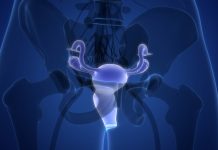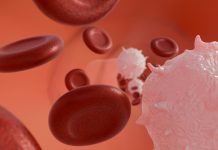Monique van Leerdam, leading colorectal cancer expert and Member of the United European Gastroenterology Public Affairs Committee, discusses what action can be taken to reduce the heavy burden of colorectal cancer across Europe
Colorectal cancer (CRC) is Europe’s second biggest cancer killer, claiming the lives of over 170,000 people in the EU each year1. Accounting for 13% of all cancers with over 375,000 newly diagnosed cases annually, CRC is the most common digestive cancer.
This year marks ten years since the European Parliament adopted the Written Declaration on Fighting Colorectal Cancer in the European Union, which called upon the EU and Member States to improve public awareness and policies to tackle the CRC burden across Europe. CRC screening, which has been shown to reduce mortality rates, was a key focus of the Written Declaration, with calls to encourage the implementation of CRC screening best practice in all EU countries. Since 2010, the number of countries that have implemented CRC screening has increased from 15 to 23, targeting 72% of the eligible European population3. Although clear progress has been made in the implementation of CRC screening programmes across the EU, there are still vast discrepancies between Member States in the quality and cover of their national programmes.
The importance of CRC screening
Detecting CRC at an early stage is vital in improving survival rates. CRC patients have a five-year survival rate of 92% when detected at stage 1 and a 84% survival rate at stage 2, whilst dropping down to 65% when detected at stage 3 and even further at stage 4 with a survival rate of just 10% 6. This demonstrates the vast majority of patients can be cured if they receive an early diagnosis. Since the rollout of screening programmes, Europe has observed a steady decline in CRC mortality rates and a recent global study published in The Lancet has demonstrated a correlation between the introduction of screening programmes and a reduction in mortality.
At present, Bulgaria, Latvia, Romania and the Slovak Republic have not initiated screening programmes and are falling behind other nations in ensuring screening is an accessible service for all citizens, helping to improve patient outcomes2. However, implementing a screening programme in the first place is not the only issue. The inequality in eligible citizens participating in screening is vast. When comparing Slovenia and Hungary, for example, Slovenia has a strong participation rate of 60% whereas in Hungary, only 1% of the target population participate in screening.
EU governments should therefore urgently address both the implementation and organisation of screening programmes, aiming to improve both the coverage and quality of screening.
Improving public awareness
As well as improvements in CRC screening, we need to support and encourage public awareness campaigns and public health interventions in the EU that facilitate positive lifestyle changes to reduce the risk of CRC.
Nine in ten people, for example, are unaware that alcohol increases the risk of cancer. Consuming just one alcoholic drink per day increases the lifetime risk of CRC from 4% to 5% and it is therefore advised to avoid heavy alcohol consumption to reduce the risk of CRC4. In addition to the risks associated with alcohol, CRC is linked to inactive lifestyles, poor diets and obesity5. CRC rates in young adults is increasing by 6% per year, which could be linked to these unhealthy habits and sedentary lifestyles. Raising public awareness that address healthy lifestyles is, therefore, a key measure action in minimising the threat of colorectal cancer.
Positive actions include the introduction of policies that limit the consumption of fast foods, implementing incentives to reduce the production of processed foods and facilitating educational programmes that highlight the risk of smoking, high alcohol consumption and processed foods.
Knowing the key symptoms of CRC is also a key factor helping to achieve an earlier diagnosis. These include a change in bowel habits, blood in stools or unexpected weight loss. Healthcare professionals must act as proactive figures by educating citizens of CRC symptoms to help contribute to early detection of this disease.
Summary
The most crucial and effective component in the battle against colorectal cancer is to recognise its presence as early as possible. Increasing the implementation and quality of CRC screening programmes needs to become a key priority for governments across Europe, as well as improving public awareness of the key symptoms and risk factors.
Read UEG’s ‘Coordinating European Action on Colorectal Cancer’ manifesto here.
References
1 European Parliament. (2010). Written declaration on fighting colorectal cancer in the European Union. Available at: http://www.europarl.europa.eu/sides/getDoc.do?pubRef=-//EP//NONSGML+WDECL+P7-DCL-2010-0068+0+DOC+PDF+V0//EN&language=EN
2 Gut. (2019). Increasing incidence of colorectal cancer in young adults in Europe over the last 25 years. Available at: https://gut.bmj.com/content/68/10/1820
3 European Commission. (2018). ECIS- European Cancer Information System. Available at: https://ecis.jrc.ec.europa.eu/explorer.php?$0-0$1-AE28$4-1,2$3-All$6-0,14$5-2008,2008$78$CEstByCancer$X0_8-3$CEstRelativeCanc$X1_8-3$X1_9-AE28
4 Alcohol and digestive cancers across Europe: time for change. Available at: https://www.ueg.eu/publications/alcohol-and-digestive-cancers-report/
5 United European Gastroenterology. 2018. European colorectal cancer rates in young adults increasing by 6% per year. (ONLINE). Available at: https://www.ueg.eu/press/releases/ueg-press-release/article/ueg-week-european-colorectal-cancer-rates-in-young-adults-increasing-by-6-per-year/
6 Bowel cancer survival statistics. Available at: https://www.cancerresearchuk.org/health-professional/cancer-statistics/statistics-by-cancer-type/bowel-cancer/survival#heading-Three












all the data is very useful about colorectal cancer